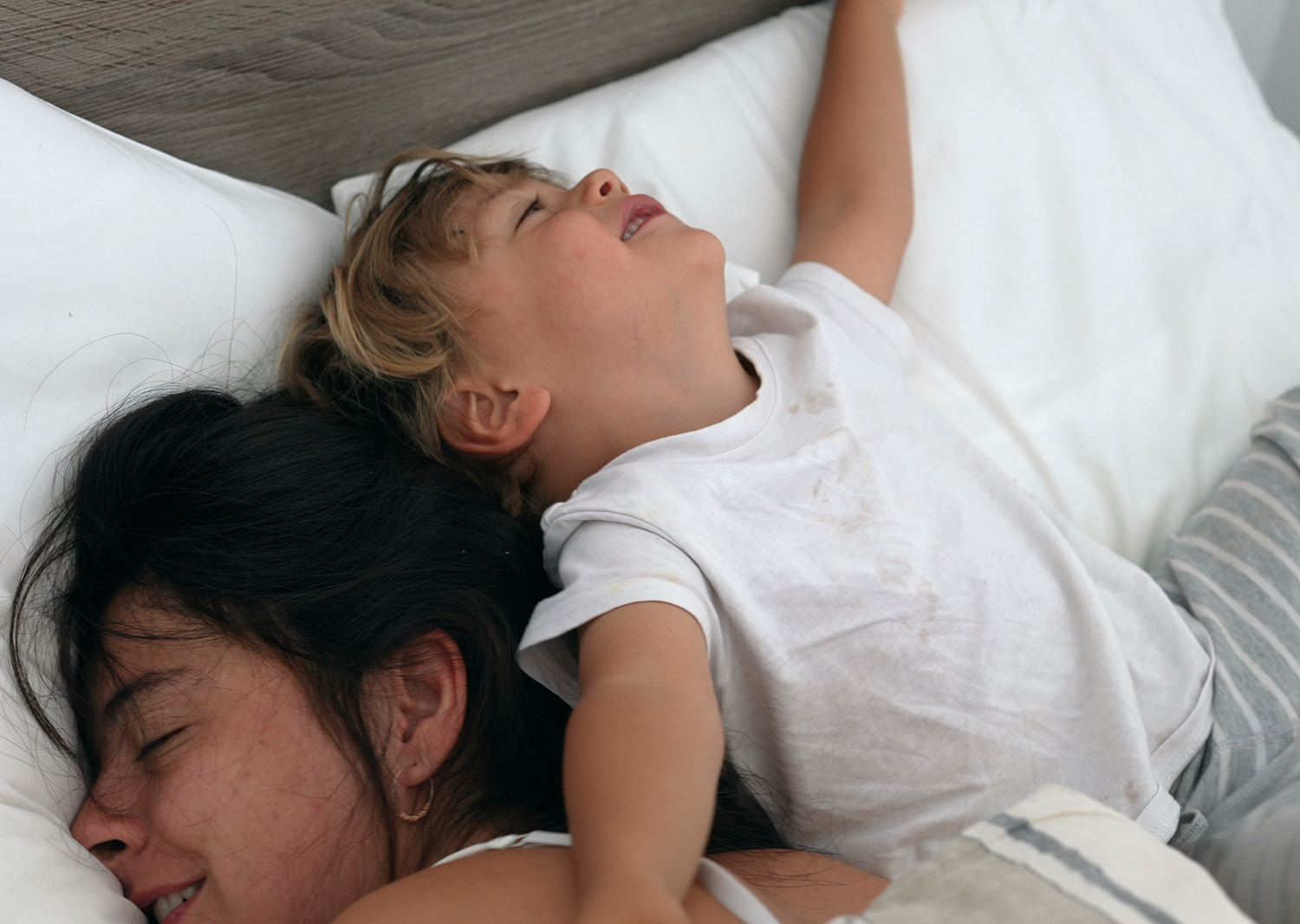Table of Contents
The 2 a.m. surprise bedroom visit is something most of us have experienced as parents. Toddlers, preschoolers, and even elementary-aged kids may come into their parents’ rooms in the middle of the night–hoping to get in the grown-ups’ bed or simply looking for comfort and support. Children may be afraid or experiencing mild separation anxiety. But a good night’s sleep is essential for parents and kids, and independent sleep is the best way to achieve it. How can you get your child to stay in her bed all night and limit those middle-of-the-night wake-ups?
 Why Is Independent Sleeping Important?
Why Is Independent Sleeping Important?
Adequate sleep is essential for both children and parents. Sleeping alone is the best way for families to get enough sleep and create opportunities for patient and productive daytime interactions. When everyone’s sleeping well, our connections during waking hours are more relaxed and positive. Learning to fall asleep by themselves is an essential skill for children. We want them to feel safe and confident when they’re alone. With consistency and support from parents, even anxious kids can achieve this feeling of security.
What Are Tips for Getting My Child to Sleep Alone?
One of the problems with encouraging independent sleep is the negative cycle that occurs when exhausted parents give in and let children into their beds. Sometimes, parents must also tackle feelings of separation as their babies get older and more independent. However, consistent efforts to help your child feel safe and secure in her room lead to positive long-term results–even if it requires more initial effort. Here are some tips for helping your child get comfortable sleeping alone:
- Consistency is key. Take the time to walk your child back into their room even when it’s 2 a.m. and you’re exhausted. Letting them hop in bed might be easier, but the long-term benefits are worth a little temporary sleep deprivation.
- If your child constantly wakes up asking for a snack or the bathroom, consistently return them to bed. You can sit in a chair in their room while they go back to sleep to provide comfort without letting them into your bed.
- Stick with evening routines that incorporate independent bedtime. Creating a routine is one of the best ways to encourage sleeping in their room. Many families include bathtime, bedtime stories, and conversation about the day as part of the evening ritual.
- Ensure your child is off electronic devices at least an hour before bedtime.
- Use positive language that makes sleeping in a big-kid bed a privilege and an opportunity instead of a punishment. Many parents choose to stress that big kids get to sleep in their own beds rather than having to sleep alone.
- Talk to your child about the importance of sleep and rest for children and adults. Explain how a good night’s sleep makes you feel better and discuss the benefits of rest for work and school in terms your child can grasp.
- Consider sticker charts and other rewards for sleeping all night in their room–similar to reward systems for potty training.
- Help make your child’s bedroom a cozy and comfortable environment. Create a space they’ll want to stay in. This can include beloved stuffed animals, night lights, and white noise machines.
- When your child is an infant, you may spend lots of quality time in your room out of convenience. As they enter the toddler years, remove the focus from your room and move cuddles and activities to the child’s room. From story time to simply hanging out, make your child’s room the place where the magic happens.
- If your child is sick or needs extra care, go to her instead of bringing her to you. Some parents temporarily move a mattress into their child’s room. She’ll still have your presence, but it reinforces her bedroom as a place of safety and comfort.
- For preschool and elementary-age children, use a clock and set a firm time at which they’re allowed to come into your room. This is often a highly effective strategy for reinforcing independence.
How Can My Pediatrician Help with Bedtime?
As pediatricians, we understand the essential role healthy sleep habits play for both parents and children. Sleep helps with everything from growth and development to strong immunity. We also know how challenging getting children to stick with bedtimes and independent sleeping can be. At Loudoun Pediatric Associates, our providers have helped families achieve sleep solutions for decades. We’re here to help with strategies and feedback for struggling parents. If your child has a sleep disorder, we can recommend a sleep specialist. However, in many cases, all it takes is consistency from mom and dad and a pediatrician’s advice and support.







